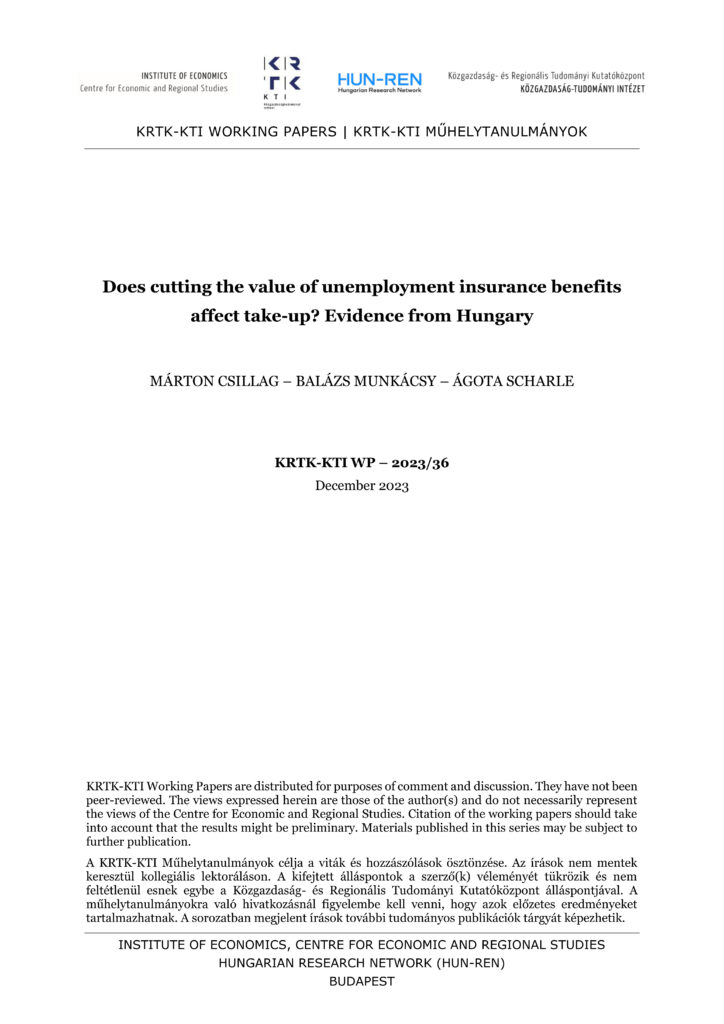Does a drastic cut in in potential benefit duration affect the take-up of unemployment insurance benefits among those eligible? We evaluate a policy change reducing the maximum length of UI benefits from 9 to 3 months in Hungary at the end of 2011. We rely on rich longitudinal matched administrative data, which allows us to obtain information on a large sample of job losers, and precisely estimate eligibility for UI benefits. We find that slightly less than 60 percent of UI eligible individuals claim benefits, and that while the length of benefit entitlement is only slightly positively correlated with taking up benefits, UI claiming rate tends to increase with previous earnings. We show that the proportion of UI benefit claims fell only slightly (by 1.5 – 2 percentage points), but this effect was more pronounced for those with the largest potential losses in UI value. This moderate effect might be related to the fact that the reform essentially got rid of the period of flat-rate UI benefits, while keeping the period when UI benefits were proportional to previous earnings roughly unchanged. At the same time, UI take-up decreased among those with low earnings (around the minimum wage) but stable employment, a group with likely little savings, which is alarming from a social policy perspective.
Publikációk / Does cutting the value of unemployment insurance benefits affect take-up? Evidence from Hungary
Does cutting the value of unemployment insurance benefits affect take-up? Evidence from Hungary
- 2023.12.20
- | 14:00

2025
Aug
31
M
T
W
T
F
S
S
28
29
30
31
1
2
3
4
5
6
7
8
9
10
11
12
13
14
15
16
17
18
19
20
21
22
23
24
25
26
27
28
29
30
31
1
2
3
4
5
6
7
Next month >
a
2025
Aug
31
M
T
W
T
F
S
S
28
29
30
31
1
2
3
4
5
6
7
8
9
10
11
12
13
14
15
16
17
18
19
20
21
22
23
24
25
26
27
28
29
30
31
1
2
3
4
5
6
7
Next month >

